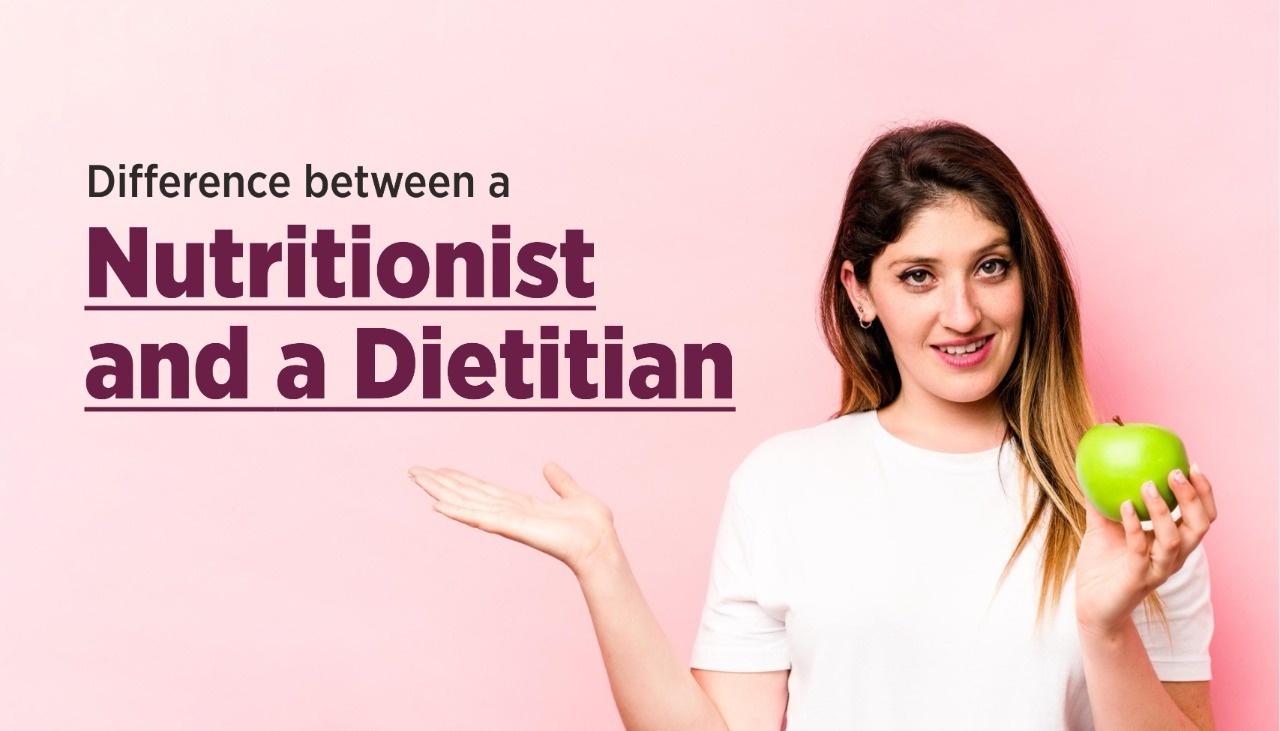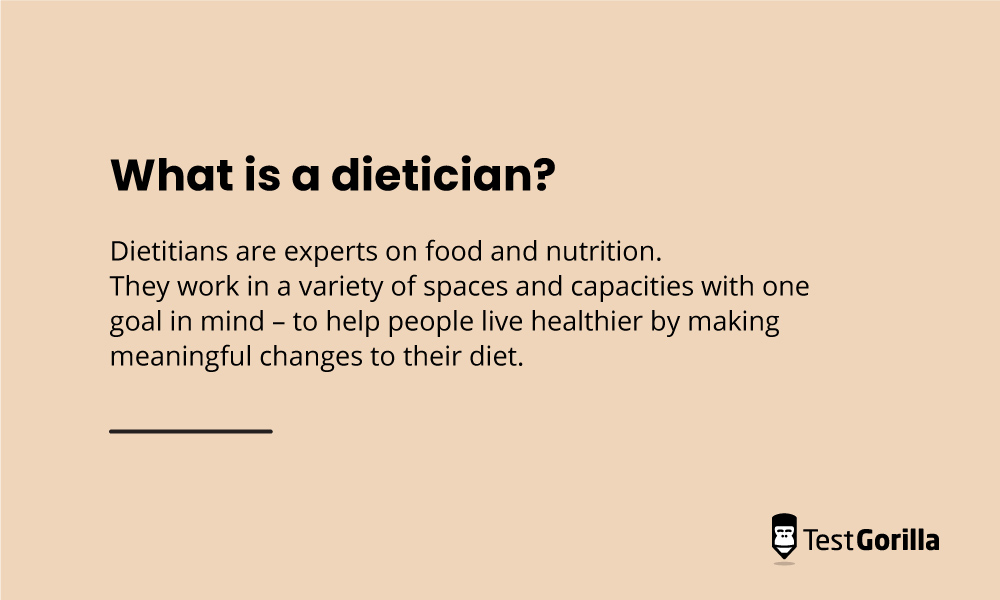All Categories
Featured
Table of Contents
-1
In the USA and numerous other countries, a dietitian is a board-certified food and nutrition professional. They are very enlightened in the area of nourishment and dietetics the scientific research of food, nourishment, and their effect on human wellness. With extensive training, dietitians get the proficiency to give evidence-based clinical nourishment therapy and nutritional counseling tailored to meet an individual's requirements.
-1To make clear, the credentials of RD and RDN are compatible. RDN is an extra recent designation. Dietitians can pick which credential they prefer to utilize. To earn these credentials dietitians-to-be have to initially gain a bachelor's degree or equal credit histories from a certified program at an university or university. Generally, this needs an undergraduate science level, consisting of programs in biology, microbiology, organic and inorganic chemistry, biochemistry and biology, makeup, and physiology, in addition to even more specialized nutrition coursework.
Certified Dietitian
-1This allows them to analyze intense needs, focusing on serious conditions. Inpatient and outpatient dietitians likewise offer nourishment education and learning to individuals with specialized needs, such as those newly out of surgical procedure, in cancer cells therapy, or identified with persistent ailments like diabetes mellitus or kidney illness. In the outpatient setting, they offer much more thorough dietary therapy functioning in the direction of a nutrition-oriented goal.
-1They can additionally support for public policies with a concentrate on nourishment, food, and health issues. Research study dietitians typically operate in research medical facilities, companies, or colleges. They run within a research study team headed by a key detective and perform nutrition-focused treatments. Once dietitians have made their qualifications and are operating in the field, they can go on to focus on a particular subcategory, such as pediatrics or sporting activities dietetics.
-1Others may work as health and nutrition professionals in media or as public audio speakers (Eating Disorder Dietitian). Dietitians are certified to manage nutrition treatment across a period of acute and chronic problems.
Registered Dietitian Eating Disorders
-1In numerous states, such as Alaska, Florida, Illinois, Maryland, Massachusetts, and Pennsylvania, RDs and CNSs are approved the same state certificate, usually called a Certified Dietitian Nutritionist (LDN) certificate. In states that do not control the usage of this term, anyone with a passion in diet plan or nourishment may call themselves a nutritionist.
-1Because uncredentialed nutritionists generally lack the know-how and training for clinical nutrition therapy and nutrition counseling, following their suggestions could be considered hazardous (). Before getting in touch with a nutritionist, you might wish to check whether your state manages that may utilize this title. In the U.S. states that don't control the term, no levels or credentials are required to be a nutritional expert.

-1
In states that do mandate licensure, the CNS or RD credential may needed. Those with CNS qualifications are health specialists like registered nurses or medical professionals with advanced health degrees who have actually chosen extra coursework, finished supervised method hours, and passed an examination supervised by the Board for Qualification of Nourishment Specialists.
-1While some of these approaches may have durable scientific backing, others might not. Providing nutrition suggestions without the appropriate expertise and training can be harmful, especially when counseling those with wellness conditions. If you are taking into consideration getting in touch with a nutritionist, you may want to ask if they are a CNS or have state licensure or accreditation, or one more credential.
Pregnancy Nutritionist
-1Numerous states especially manage this term. Furthermore, nutritionists might go after an innovative CNS accreditation.
-1It can be challenging to aid people make authentic, long lasting modifications in their lives. When you obtain a successful case, the reward can be exceptionally fulfilling. If it's a profession option that you intend to go after, there are two major occupation alternatives offered to you. Both dietitians and nutritionists provide a variety of nutrition-based solutions to clients.
-1They must have completed some level of education and learning in their area. They are also needed to have completed approximately a year of monitored job, functioning within a led program at a healthcare facility, providing business, or community body. Dietitians have far higher expectations placed on their capacities and level of professionalism and trust.
-1This means that there is no body that supervises their certifications and no specifically rigid standards that nutritionists demand to follow in order to be able to practice. Dietitians, on the various other hand, are signed up with country wide recognised bodies, such as the Dietitians Association of Australia. They should comply with the National Competency Standards for Dietitians.
Fitness Nutritionist ( Wanneroo)

-1
You can exercise as a nutritional expert without the exact same level of certification as a dietitian. Nutritionist training courses can vary in size and top quality, with some as brief as 6 weeks and covering far much less content than a dietetics training course. Relying on your education carrier, you can gain a substantial amount of understanding via researching a basic nutrition program; nevertheless it's vital to check out the training course content before commencing.
-1This can consist of attending market seminars or reading industry publications. Nutritional experts, on the various other hand, usually make their certifications in order to supplement other qualifications and give better guidance to their clients. Nutritionists can gain work in a variety of fields, consisting of public health and wellness suggestions, suggestions for individuals, and dealing with personal organisations.
-1Nutritionists can function with sporting organisations, fitness centers, colleges and advise media outlets on fundamental terms and right use of terms. Dietitians can function in many of the very same roles as nutritional experts.
Bariatric Dietitian (Butler 6036)
-1Dietitians commonly work with more medically delicate customers. Due to the fact that of the high degree of understanding called for to provide solutions to these people, only recognized dietitians are permitted to give treatment.
-1In Australia there is a distinction in between a dietitian and various other dietary health and wellness carriers including nutritionists. All dietitians are nutritional experts, however nutritional experts without a dietetics credentials can't call themselves a dietitian. While there are resemblances in between a dietitian and nutritional expert there are distinctions in certifications and guideline. The dietetic occupation is regulated and meets rigorous standards as set out by the National Partnership of Self Regulating Health And Wellness Professions (NASRHP).
-1Dietitians with the Accredited Practising Dietitian (APD) credential devote to ongoing training and education and learning throughout their careers. As an occupation, nutritionists are not controlled in Australia under NASRHP or accredited under a single regulative body.
Qualified Nutritionist
-1If you have a chronic health problem and a treatment plan from your General practitioner, you might be able to claim a Medicare refund when you see an APD. The major purpose of people working in the career of dietetics is embodied in this statement: The career of dietetics adds to the promo of health and wellness and the avoidance and therapy of illness by optimising the nourishment of populaces, neighborhoods and people. Clinical Nutrition Counseling.
Latest Posts
Home 2
Plant-based Dairy- Health Or Hype? – Darling Downs
How To Know If You Or Someone You Care About Has An ... (Dayton )